











Read More
The curriculum for the D. Pharm course is structured by the PCI, a regulatory body responsible for designing the programme to prepare students to gain knowledge in all areas of Pharmacy. Students learn the basics, including Human Anatomy and Physiology, Pharmaceutical Chemistry, Pharmacognosy, Pharmaceutics, Social Pharmacy, Pharmacology, Community Pharmacy and Management, Biochemistry, and Clinical Pathology, Pharmacotherapeutics, Hospital and Clinical Pharmacy, and Pharmacy Law and Ethics, both in theory and through practical applications, field visits, and hospital training where applicable.
Year wise Course Details
Courses for this year
The Course of D. Pharm is structured by the PCI, a regulatory for designing the curriculum with an aim to prepare the students to acquire knowledge in all subjects of Pharmacy. The incumbent learns about the basic subjects like Human Anatomy and Physiology, Pharmaceutical Chemistry, Pharmacognosy, Pharmaceutics, Social Pharmacy, Pharmacology, Community Pharmacy & Management, Biochemistry & Clinical Pathology, Pharmacotherapeutics, Hospital & Clinical Pharmacy and Pharmacy Law & Ethics Theory and Practical’s wherever applicable, field visits and Hospital Training.
The Course of D. Pharm is structured by the PCI, a regulatory for designing the curriculum with an aim to prepare the students to acquire knowledge in all subjects of Pharmacy. The incumbent learns about the basic subjects like Human Anatomy and Physiology, Pharmaceutical Chemistry, Pharmacognosy, Pharmaceutics, Social Pharmacy, Pharmacology, Community Pharmacy & Management, Biochemistry & Clinical Pathology, Pharmacotherapeutics, Hospital & Clinical Pharmacy and Pharmacy Law & Ethics Theory and Practical’s wherever applicable, field visits and Hospital Training.
The Course of D. Pharm is structured by the PCI, a regulatory for designing the curriculum with an aim to prepare the students to acquire knowledge in all subjects of Pharmacy. The incumbent learns about the basic subjects like Human Anatomy and Physiology, Pharmaceutical Chemistry, Pharmacognosy, Pharmaceutics, Social Pharmacy, Pharmacology, Community Pharmacy & Management, Biochemistry & Clinical Pathology, Pharmacotherapeutics, Hospital & Clinical Pharmacy and Pharmacy Law & Ethics Theory and Practical’s wherever applicable, field visits and Hospital Training.
The Course of D. Pharm is structured by the PCI, a regulatory for designing the curriculum with an aim to prepare the students to acquire knowledge in all subjects of Pharmacy. The incumbent learns about the basic subjects like Human Anatomy and Physiology, Pharmaceutical Chemistry, Pharmacognosy, Pharmaceutics, Social Pharmacy, Pharmacology, Community Pharmacy & Management, Biochemistry & Clinical Pathology, Pharmacotherapeutics, Hospital & Clinical Pharmacy and Pharmacy Law & Ethics Theory and Practical’s wherever applicable, field visits and Hospital Training.
The Course of D. Pharm is structured by the PCI, a regulatory for designing the curriculum with an aim to prepare the students to acquire knowledge in all subjects of Pharmacy. The incumbent learns about the basic subjects like Human Anatomy and Physiology, Pharmaceutical Chemistry, Pharmacognosy, Pharmaceutics, Social Pharmacy, Pharmacology, Community Pharmacy & Management, Biochemistry & Clinical Pathology, Pharmacotherapeutics, Hospital & Clinical Pharmacy and Pharmacy Law & Ethics Theory and Practical’s wherever applicable, field visits and Hospital Training.
The Course of D. Pharm is structured by the PCI, a regulatory for designing the curriculum with an aim to prepare the students to acquire knowledge in all subjects of Pharmacy. The incumbent learns about the basic subjects like Human Anatomy and Physiology, Pharmaceutical Chemistry, Pharmacognosy, Pharmaceutics, Social Pharmacy, Pharmacology, Community Pharmacy & Management, Biochemistry & Clinical Pathology, Pharmacotherapeutics, Hospital & Clinical Pharmacy and Pharmacy Law & Ethics Theory and Practical’s wherever applicable, field visits and Hospital Training.
The Course of D. Pharm is structured by the PCI, a regulatory for designing the curriculum with an aim to prepare the students to acquire knowledge in all subjects of Pharmacy. The incumbent learns about the basic subjects like Human Anatomy and Physiology, Pharmaceutical Chemistry, Pharmacognosy, Pharmaceutics, Social Pharmacy, Pharmacology, Community Pharmacy & Management, Biochemistry & Clinical Pathology, Pharmacotherapeutics, Hospital & Clinical Pharmacy and Pharmacy Law & Ethics Theory and Practical’s wherever applicable, field visits and Hospital Training.
The Course of D. Pharm is structured by the PCI, a regulatory for designing the curriculum with an aim to prepare the students to acquire knowledge in all subjects of Pharmacy. The incumbent learns about the basic subjects like Human Anatomy and Physiology, Pharmaceutical Chemistry, Pharmacognosy, Pharmaceutics, Social Pharmacy, Pharmacology, Community Pharmacy & Management, Biochemistry & Clinical Pathology, Pharmacotherapeutics, Hospital & Clinical Pharmacy and Pharmacy Law & Ethics Theory and Practical’s wherever applicable, field visits and Hospital Training.
The Course of D. Pharm is structured by the PCI, a regulatory for designing the curriculum with an aim to prepare the students to acquire knowledge in all subjects of Pharmacy. The incumbent learns about the basic subjects like Human Anatomy and Physiology, Pharmaceutical Chemistry, Pharmacognosy, Pharmaceutics, Social Pharmacy, Pharmacology, Community Pharmacy & Management, Biochemistry & Clinical Pathology, Pharmacotherapeutics, Hospital & Clinical Pharmacy and Pharmacy Law & Ethics Theory and Practical’s wherever applicable, field visits and Hospital Training.
The Course of D. Pharm is structured by the PCI, a regulatory for designing the curriculum with an aim to prepare the students to acquire knowledge in all subjects of Pharmacy. The incumbent learns about the basic subjects like Human Anatomy and Physiology, Pharmaceutical Chemistry, Pharmacognosy, Pharmaceutics, Social Pharmacy, Pharmacology, Community Pharmacy & Management, Biochemistry & Clinical Pathology, Pharmacotherapeutics, Hospital & Clinical Pharmacy and Pharmacy Law & Ethics Theory and Practical’s wherever applicable, field visits and Hospital Training.
Courses for this year
The Course of D. Pharm is structured by the PCI, a regulatory for designing the curriculum with an aim to prepare the students to acquire knowledge in all subjects of Pharmacy. The incumbent learns about the basic subjects like Human Anatomy and Physiology, Pharmaceutical Chemistry, Pharmacognosy, Pharmaceutics, Social Pharmacy, Pharmacology, Community Pharmacy & Management, Biochemistry & Clinical Pathology, Pharmacotherapeutics, Hospital & Clinical Pharmacy and Pharmacy Law & Ethics Theory and Practical’s wherever applicable, field visits and Hospital Training.
The Course of D. Pharm is structured by the PCI, a regulatory for designing the curriculum with an aim to prepare the students to acquire knowledge in all subjects of Pharmacy. The incumbent learns about the basic subjects like Human Anatomy and Physiology, Pharmaceutical Chemistry, Pharmacognosy, Pharmaceutics, Social Pharmacy, Pharmacology, Community Pharmacy & Management, Biochemistry & Clinical Pathology, Pharmacotherapeutics, Hospital & Clinical Pharmacy and Pharmacy Law & Ethics Theory and Practical’s wherever applicable, field visits and Hospital Training.
The Course of D. Pharm is structured by the PCI, a regulatory for designing the curriculum with an aim to prepare the students to acquire knowledge in all subjects of Pharmacy. The incumbent learns about the basic subjects like Human Anatomy and Physiology, Pharmaceutical Chemistry, Pharmacognosy, Pharmaceutics, Social Pharmacy, Pharmacology, Community Pharmacy & Management, Biochemistry & Clinical Pathology, Pharmacotherapeutics, Hospital & Clinical Pharmacy and Pharmacy Law & Ethics Theory and Practical’s wherever applicable, field visits and Hospital Training.
The Course of D. Pharm is structured by the PCI, a regulatory for designing the curriculum with an aim to prepare the students to acquire knowledge in all subjects of Pharmacy. The incumbent learns about the basic subjects like Human Anatomy and Physiology, Pharmaceutical Chemistry, Pharmacognosy, Pharmaceutics, Social Pharmacy, Pharmacology, Community Pharmacy & Management, Biochemistry & Clinical Pathology, Pharmacotherapeutics, Hospital & Clinical Pharmacy and Pharmacy Law & Ethics Theory and Practical’s wherever applicable, field visits and Hospital Training.
The Course of D. Pharm is structured by the PCI, a regulatory for designing the curriculum with an aim to prepare the students to acquire knowledge in all subjects of Pharmacy. The incumbent learns about the basic subjects like Human Anatomy and Physiology, Pharmaceutical Chemistry, Pharmacognosy, Pharmaceutics, Social Pharmacy, Pharmacology, Community Pharmacy & Management, Biochemistry & Clinical Pathology, Pharmacotherapeutics, Hospital & Clinical Pharmacy and Pharmacy Law & Ethics Theory and Practical’s wherever applicable, field visits and Hospital Training.
The Course of D. Pharm is structured by the PCI, a regulatory for designing the curriculum with an aim to prepare the students to acquire knowledge in all subjects of Pharmacy. The incumbent learns about the basic subjects like Human Anatomy and Physiology, Pharmaceutical Chemistry, Pharmacognosy, Pharmaceutics, Social Pharmacy, Pharmacology, Community Pharmacy & Management, Biochemistry & Clinical Pathology, Pharmacotherapeutics, Hospital & Clinical Pharmacy and Pharmacy Law & Ethics Theory and Practical’s wherever applicable, field visits and Hospital Training.
The Course of D. Pharm is structured by the PCI, a regulatory for designing the curriculum with an aim to prepare the students to acquire knowledge in all subjects of Pharmacy. The incumbent learns about the basic subjects like Human Anatomy and Physiology, Pharmaceutical Chemistry, Pharmacognosy, Pharmaceutics, Social Pharmacy, Pharmacology, Community Pharmacy & Management, Biochemistry & Clinical Pathology, Pharmacotherapeutics, Hospital & Clinical Pharmacy and Pharmacy Law & Ethics Theory and Practical’s wherever applicable, field visits and Hospital Training.
The Course of D. Pharm is structured by the PCI, a regulatory for designing the curriculum with an aim to prepare the students to acquire knowledge in all subjects of Pharmacy. The incumbent learns about the basic subjects like Human Anatomy and Physiology, Pharmaceutical Chemistry, Pharmacognosy, Pharmaceutics, Social Pharmacy, Pharmacology, Community Pharmacy & Management, Biochemistry & Clinical Pathology, Pharmacotherapeutics, Hospital & Clinical Pharmacy and Pharmacy Law & Ethics Theory and Practical’s wherever applicable, field visits and Hospital Training.
The Course of D. Pharm is structured by the PCI, a regulatory for designing the curriculum with an aim to prepare the students to acquire knowledge in all subjects of Pharmacy. The incumbent learns about the basic subjects like Human Anatomy and Physiology, Pharmaceutical Chemistry, Pharmacognosy, Pharmaceutics, Social Pharmacy, Pharmacology, Community Pharmacy & Management, Biochemistry & Clinical Pathology, Pharmacotherapeutics, Hospital & Clinical Pharmacy and Pharmacy Law & Ethics Theory and Practical’s wherever applicable, field visits and Hospital Training.
The Course of D. Pharm is structured by the PCI, a regulatory for designing the curriculum with an aim to prepare the students to acquire knowledge in all subjects of Pharmacy. The incumbent learns about the basic subjects like Human Anatomy and Physiology, Pharmaceutical Chemistry, Pharmacognosy, Pharmaceutics, Social Pharmacy, Pharmacology, Community Pharmacy & Management, Biochemistry & Clinical Pathology, Pharmacotherapeutics, Hospital & Clinical Pharmacy and Pharmacy Law & Ethics Theory and Practical’s wherever applicable, field visits and Hospital Training.
The Course of D. Pharm is structured by the PCI, a regulatory for designing the curriculum with an aim to prepare the students to acquire knowledge in all subjects of Pharmacy. The incumbent learns about the basic subjects like Human Anatomy and Physiology, Pharmaceutical Chemistry, Pharmacognosy, Pharmaceutics, Social Pharmacy, Pharmacology, Community Pharmacy & Management, Biochemistry & Clinical Pathology, Pharmacotherapeutics, Hospital & Clinical Pharmacy and Pharmacy Law & Ethics Theory and Practical’s wherever applicable, field visits and Hospital Training.

CST- Common scholarship test is a national and international level online MCQ based examination funded for intellectual empowerment by Assam down town University.
CST- Maximum enrolment each year is 269 seats and any 10+2 students can apply. Adtu is northeast India’s first placement driven university to provide 100% scholarship benefits worth 30 cr.
CST aims to inspire brilliant and competent students to pursue further education. Accredited with a prestigious grade by NAAC, UGC and AICTE.
Explore more scholarships that can help you reach out your goal with financial aid.
This scholarship is valid on the basis of the board/university examination
| 95% & above | 100% Scholarship on all semester |
| 90%-94.9% | 50% Scholarship on all semester |
| 80%-89.9% | 25% Scholarship on all semester |
This scholarship is valid on the basis of the board/university exam
| National & International Level | 100% Scholarship on all semester |
| State Level | 50% Scholarship on all semester |
| District Level | 25% Scholarship on all semester |
This scholarship is valid on the basis of the board/university exam
| National & International Level | 100% Scholarship on all semester |
| State Level | 50% Scholarship on all semester |
| District Level & NCC Certificate Holder | 25% Scholarship on all semester |
Discover a multitude of world-class amenities and cutting-edge resources at Assam down town University, enhancing your academic journey to new heights.
The Start-Up & Incubation Centre at Assam down town University provides a supportive environment for young entrepreneurs to develop and grow their business ideas. The center provides mentorship, funding, and networking opportunities to help innovative ideas become successful businesses.
SFURTI scheme to support rural entrepreneurs and innovators, an initiative by the Ministry of MSME
TIDE 2.0 scheme for ICT-based startups which provides a grant of Rs. 4L and Rs. 7L under EiR and Grant categories respectively, an initiative by the Ministry of MeitY.
dtVL Ideation, an incubation program for early-stage entrepreneurs with a market-ready solution/product, offering interest-free loans up to Rs. 2 lakhs.
Sprout UP, an incubation program for students, faculties, and researchers with innovative business ideas, prototypes, or technology solutions.













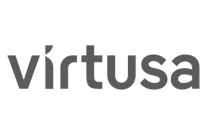











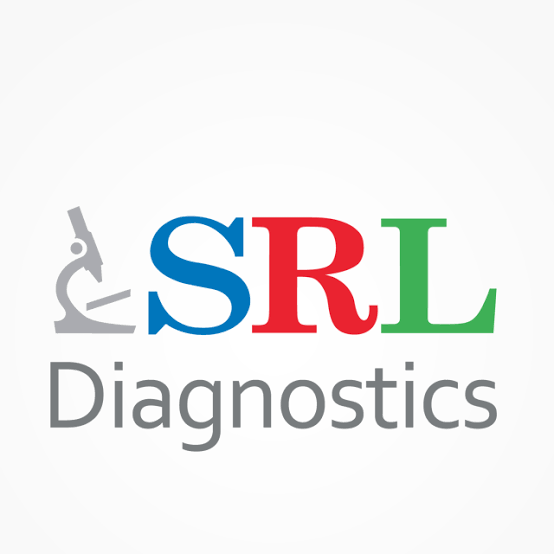




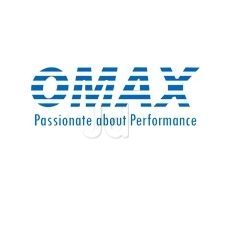
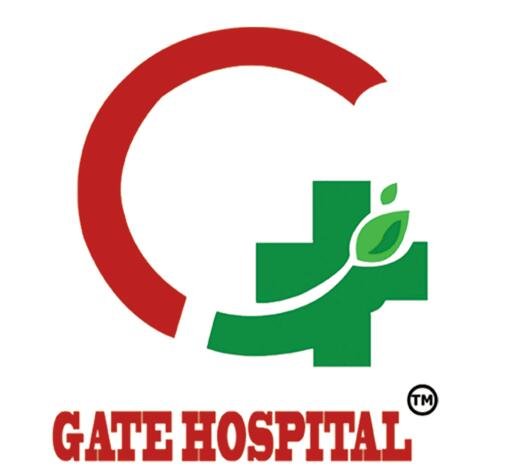


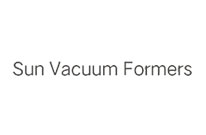

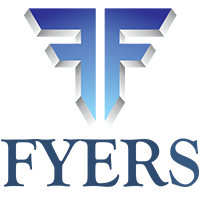













"I am a BBA student of 3rd semester. I hail from Bhutan. I vow that I am having a great experience i...
"AdtU is amazing. I am a BBA student of 2019-22 batch and I am just grateful for the amount of oppor...
Let us be grateful to the people and place who makes us happy. They are the charming gardeners whom ...
Currently I am pursuing MBA in Assam Down Town University. MBA is the professional course through wh...
AdtU is a university that focuses on giving knowledge, education and simultaneously making the stude...
The Assam downtown University has been a great learning experience. The university has provided me w...
My experience with AdtU has been splendid one indeed. Little needs to said about its scenic infrastr...
As a student I am very glad that I have got an opportunity to study here in Assam downtown universi...
My name is Sakhyajit Roy. I?m from Tripura. I joined the university on Auguest, 2017 as a student of...
I share immense pleasure to share my post graduate program experience in Assam down town University....
AdtU is a platform where I got golden opportunities to feed my zeal for knowledge through the dynami...
I am fortunate to get an opportunity to study here in Assam Downtown University. The best thing abou...
Our university is one of the best place for developing ourselves in the field of research and acedem...
ADTU is a university that is very good interms of infrastructure, academics and placements. Our tea...
It is one of best private colleges in North East India, it also provides a good environment for ed...
ADTU is a good University which provides the students with best quality lectures and ensures comfort...
The environment of Assam downtown university is very pleasant.The department of BMLT is very good a...
The university has all the necessary facilities and amenities for students . The classrooms and the ...
Assam downtown University is well recognised all over india. In the ongoing pandemic situation it ha...








